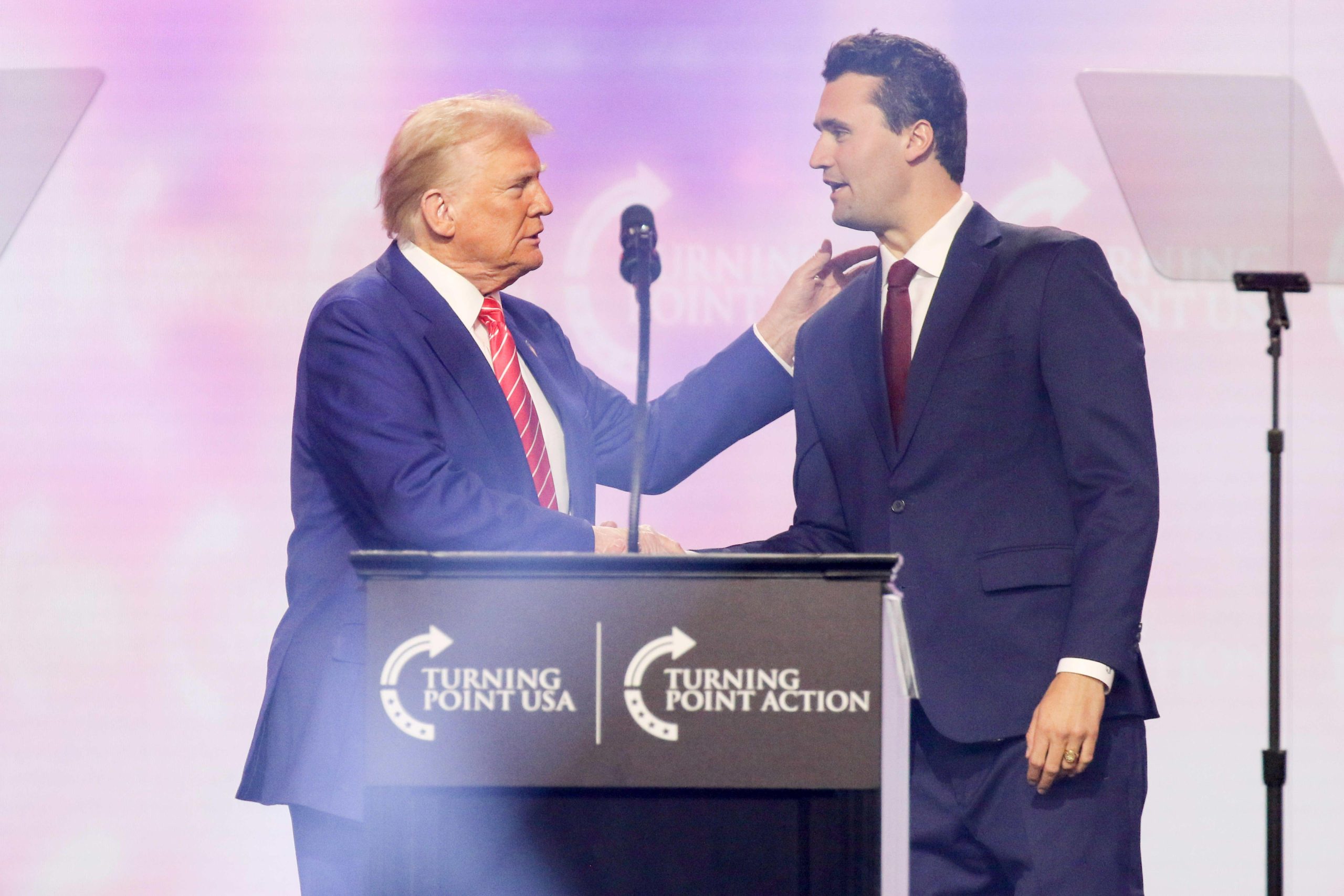In 2013, as part of research for my book on Chinese youth, I sat down with one of the country’s most notorious young nationalists. Rao Jin was known for running a website, then known as Anti-CNN.com, that was against the American 24-hour news network (as a proxy for the West). Ideologically we could not have been further removed. But his views were (and still are) popular and I needed to understand how he arrived at them. We shared tea and despite our differences we spoke calmly. It was very civil.
That word civil is not one we can use right now for the USA, where the murder of Charlie Kirk and the response to it expose just how far we’ve drifted from basic norms of decency. The right-wing influencer and Donald Trump ally was shot and killed, aged 31, while speaking at a university in Utah. He was silenced, literally, though by who and for what reason we can only guess right now.
It was a horrifying display and because some people on social media seem to have no boundaries, I have accidentally seen, when scrolling, the moment it happened. I wish I hadn’t.
Horrifying too has been the commentary. Hours after the shooting, President Trump posted on Truth Social that his “administration will find each and every one of those who contributed to this atrocity and to other political violence” and that the “radical left political violence has hurt too many innocent people”. Trump’s words could be seen as an invitation to retribution. They’re full of assumption – that he was killed by someone from the left who opposed his views – and they’re inaccurate. Claims that violence is a liberal issue, echoed by Elon Musk and many others too since yesterday, are rubbish, a smack in the face of facts. Political violence happens on the extreme edges of the left-right spectrum. It was just two months ago that a Democrat lawmaker and her husband were killed.
The USA has also always been marked by such violence. I have first-hand experience of it. On a visit to LA in 2002 I had to duck behind a bus stop after two men sparred in a queue at Starbucks, leading to one pulling a gun on the other outside. Beyond my own experience are the well-known examples – the Kennedys, Lincoln, Martin Luther King Jr, Huey Long, Harvey Milk – to name just a few.
That said, it’s clear that in today’s USA a violent form of authoritarianism is growing, feeding off an angry, deeply polarised population and aided by lax gun laws. Kirk’s murder is sadly just another piece of the puzzle, something we are trying to understand at Index and to counteract.
While Trump’s comments are terrifying in their implication, the remarks of those who either defended the shooter, diminished the horror or delighted in a form of schadenfreude were very troubling too. It is one thing to call out Kirk for his views. Many were vile and at the limits of what might be considered acceptable speech. It is another to badmouth a man in his dying moments, or after, with the implication being that he got what he deserved. Some have even responded to our post on Bluesky in such a way. It’s strange that I have to say here that Index will never condone violence.
As is the case with Rao Jin, I am sure that if Kirk and I had ever met we’d have vehemently disagreed with one another. Is it so hard though for people to hold two truths at once – that you can abhor someone’s views and abhor their murder too? Is it so hard to listen to people across the spectrum, to use words to counter speech you don’t like, not bullets?
The murder might peel open the USA to expose its fault lines like no other in recent years. It comes in the same week that the country’s leading free speech organisation, Fire, issued their annual report on free speech on campus, in which they said “the atmosphere isn’t just cautious – it’s hostile”. According to the report a majority of students surveyed opposed their college hosting six hypothetical speakers with controversial views and that students of every political persuasion showed “a deep unwillingness to encounter controversial ideas”. There’s a bitter irony here in the report’s timing.
The dust will settle on Kirk’s murder. The person behind it, perhaps already arrested, will likely be named. Their motivations will hopefully be aired. Maybe it was nothing to do with his views. As someone speculated on our Bluesky post, “what if he was having an affair with the wife of an army sniper?” Maybe he was.
Still, the broader context and point remains. We have a president in power who is not in favour of free speech for all and whose comments essentially encourage political violence, likely because it is expedient – it makes coming after ideological enemies easier. At the same time we have too many people who condone or downplay violence when it concerns those who they don’t agree with. But violence begets violence. Left unchecked it will come for us all and no one’s views, no matter how confronting, should make us lose sight of that.






